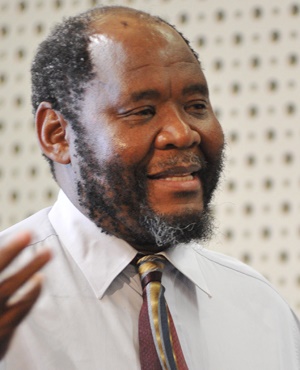
That song played a huge role in conscientising citizens of Western countries about Africa and putting the continent on the global agenda.
That song would be so apt in relation to the South African economy right now, where, week in, week out, we are bombarded with bad news.
This week it was the turn of Stats SA boss Pali Lehohla, who hit us with the depressing news that our gross domestic product had shrunk 1.3% in the second quarter.
The breakdown was dire:
. Negative growth in most manufacturing sectors of 6.3%;
. A 6.8% decline in mining; and
. A 17.4% decline in agriculture, forestry and fishing. The only positive growth was in the highly technical and low-employment financial services and property sectors.
The path out of this quagmire was high on the minds of panellists at a seminar organised by the OR and Adelaide Tambo Foundation and the University of Stellenbosch Business School last week. But as hard as they tried to shine a light into the tunnel, its battery just kept on faltering.
Even the National Development Plan (NDP), that supposed panacea for our all problems, does not come up with a definitive way out of the crisis, as different sectors differ strongly on the medicine required.
As National Planning Commission member Mohammad Karaan pointed out, business and labour are at odds about the way forward.
For instance, business believes the focus should be on “creating a conducive investment climate”, aggressively reducing regulatory impediments, prioritising the information and communication technology sector and improving labour productivity. Labour, on the other hand, is concerned that the jobs the NDP is targeting will be low quality, that the plan is unambitious about the poverty threshold and that there is too little emphasis on reindustrialisation.
Karaan said the country had already done the costlier – but easier-to-do – interventions, such as redistributing money and assets such as housing. The challenge was now to embark on more sustainable actions that would have a greater impact on growth and poverty reduction, including broadening the reach of quality education and “creating work for unskilled people”.
A tough conversation needed to be had about the role of unions in the education system, as this was a hindrance to the skilling of South Africa’s future workforce.
“Research shows that the more unionised the education sector, the lower the outcomes,” said Karaan.
He added that, in as much as the upskilling of the workforce was imperative, this was a long-term project that would not do much to dent the current unemployment crisis.
“We need to create jobs where the unemployed are at the level of the skills of the unemployed. Farming is one of those areas,” he said.
Stellenbosch University’s economic management dean, Stan du Plessis, who painted a bleak picture of the country’s immediate prospects, said a big question that had to be answered was why private corporations were not investing in business expansion. While low demand and the absence of skilled labour had been cited as some of the reasons in recent years, the deterioration of the political climate had emerged as the key reason corporations were not investing in growth.
Quoting research done by the university’s Bureau for Economic Research, the rate of businesses citing the political climate as an excuse had gone from about 20% in 2005 to 75% in 2013, and currently stood at just under 70%.
While they had no specifics about the meaning of “political climate”, policy incoherence came up as a major issue for businesses’ decision makers.
The plethora of proposals – from the Accelerated and Shared Growth Initiative to the National Growth Plan and the Industrial Policy Action Plan – is a cause for concern among businesses wanting certainty.
Although these will not be immediate silver bullets, government will need to move fast to sort out state-owned enterprises, achieve coherence, reform the labour market and reduce the regulatory burden if the country is to achieve a growth trajectory in the next few years.
“We have to immediately solve the constraints on growth,” said Du Plessis.
Deputy Finance Minister Mcebisi Jonas bemoaned the polarisation of the economic debate, saying it was constraining the search for solutions.
“The debate is too ideological,” he said.




 Publications
Publications
 Partners
Partners








